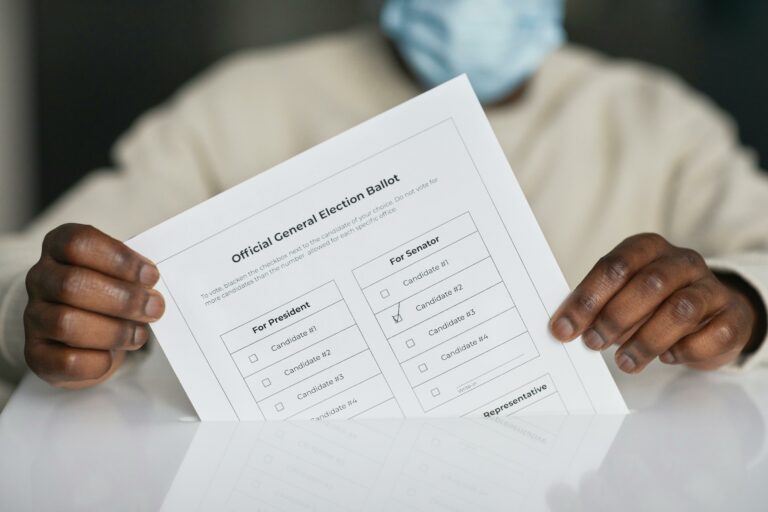Ensuring Diversity and Inclusion in Election Security Practices
99 exchange login password, laser 247 sign up, yolo 247:Ensuring Diversity and Inclusion in Election Security Practices
In today’s society, diversity and inclusion are pivotal components of any successful organization or initiative. When it comes to election security practices, ensuring diversity and inclusion is not only necessary but also crucial for upholding the integrity of the electoral process. By incorporating diverse perspectives and experiences into election security practices, we can better address the complex challenges and vulnerabilities that exist within our electoral systems.
The Importance of Diversity in Election Security Practices
Diversity in election security practices refers to the representation of individuals from various backgrounds, including but not limited to race, gender, ethnicity, and socioeconomic status. When it comes to safeguarding our elections, diversity plays a significant role in improving the effectiveness and efficiency of security measures. By bringing together individuals with diverse perspectives and expertise, we can better identify and address vulnerabilities in our electoral systems.
One of the key benefits of diversity in election security practices is the ability to foster innovation and creativity. When individuals from different backgrounds come together, they bring unique insights and ideas to the table. This diversity of thought can lead to the development of more robust security protocols and strategies that are better equipped to handle emerging threats.
In addition, diversity in election security practices helps to enhance transparency and accountability. By involving individuals from various backgrounds in the decision-making process, we can ensure that security measures are fair and equitable for all stakeholders. This can help build trust and confidence in the electoral process, ultimately increasing voter turnout and participation.
Why Inclusion Matters in Election Security Practices
Inclusion in election security practices refers to the active involvement and participation of all individuals, regardless of their background or identity. Inclusion is essential for ensuring that all voices are heard and considered in the development and implementation of security measures. By promoting inclusion, we can create a culture of respect and collaboration that fosters trust and cooperation among all stakeholders.
One of the key benefits of inclusion in election security practices is the ability to build consensus and solidarity. When all individuals feel valued and respected, they are more likely to work together towards common goals and objectives. This can help unify efforts to address security vulnerabilities and ensure the integrity of our electoral systems.
In addition, inclusion in election security practices helps to promote equity and fairness. By involving individuals from diverse backgrounds in decision-making processes, we can ensure that security measures are tailored to meet the needs of all stakeholders. This can help mitigate the risk of biases and discrimination that may arise in security practices, ultimately creating a more inclusive and accessible electoral process for all.
The Role of Diversity and Inclusion in Election Security Practices
In order to ensure diversity and inclusion in election security practices, it is important to take proactive steps to promote a culture of equity and respect within electoral systems. This can be achieved through a variety of strategies, including:
1. Recruiting and retaining a diverse team of security experts: By actively seeking out individuals from diverse backgrounds to work on election security practices, we can ensure that all voices are represented in decision-making processes. This can help bring new perspectives and insights to the table, ultimately leading to more effective security measures.
2. Providing training and professional development opportunities: In order to promote inclusivity in election security practices, it is important to provide ongoing training and development opportunities for all individuals involved in the electoral process. This can help build skills and capabilities, while also fostering a culture of collaboration and cooperation.
3. Engaging with diverse communities and stakeholders: In order to ensure that security measures are tailored to meet the needs of all stakeholders, it is important to actively engage with diverse communities and individuals throughout the electoral process. This can help build trust and confidence in the security of our elections, while also promoting transparency and accountability.
4. Evaluating and updating security protocols regularly: In order to address emerging threats and vulnerabilities, it is important to regularly evaluate and update security protocols and strategies. By incorporating diverse perspectives into these efforts, we can enhance the effectiveness and efficiency of our security measures, ultimately safeguarding the integrity of our elections.
By taking proactive steps to promote diversity and inclusion in election security practices, we can create a more equitable and accessible electoral process for all stakeholders. By fostering a culture of respect and collaboration, we can build trust and confidence in the security of our elections, ultimately upholding the democratic principles that form the foundation of our society.
FAQs
Q: Why is diversity important in election security practices?
A: Diversity is important in election security practices because it brings together individuals with unique perspectives and experiences, leading to more innovative and effective security measures.
Q: How can inclusion help improve election security practices?
A: Inclusion is essential for ensuring that all voices are heard and considered in decision-making processes, leading to more equitable and fair security measures.
Q: What are some strategies for promoting diversity and inclusion in election security practices?
A: Recruiting a diverse team of security experts, providing training and development opportunities, engaging with diverse communities, and regularly evaluating and updating security protocols are all strategies for promoting diversity and inclusion in election security practices.







